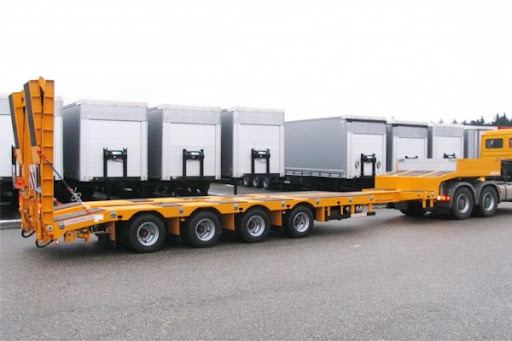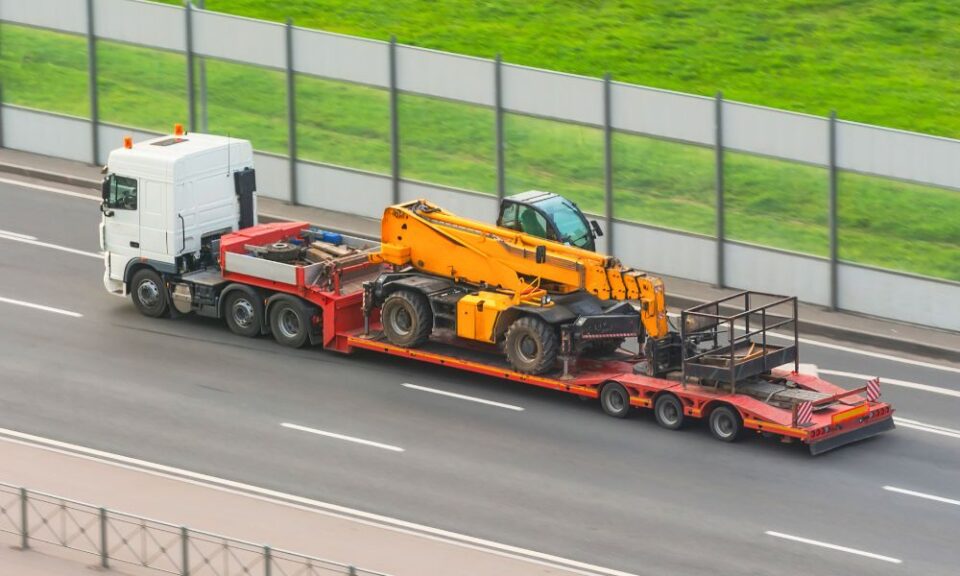When it comes to shipping freight over-the-road (OTR), shippers have several options for the types of trailers they can use, including dry van, flatbed, refrigerated (reefer), and more. Each type of trailer has its own set of advantages and disadvantages, which can affect the shipping process in terms of efficiency, cost, and safety. Choosing the right trailer for your specific needs is crucial for both the shipper and the carrier. Let’s break down the pros and cons of the most commonly used freight trailers, and how they impact shippers and carriers.
Types of Freight Trailers
1. Dry Van Trailer
Dry van trailers are perhaps the most common type of freight trailers used for shipping over-the-road. These trailers are fully enclosed, designed to transport “dry” cargo, which is not perishable or temperature-sensitive. Dry vans typically come in lengths of 48 and 53 feet and can carry up to 45,000 lbs. These trailers are ideal for transporting a variety of goods, such as electronics, clothing, and machinery, and provide security and protection for cargo.
Pros for Shippers:
- Versatility: Dry van trailers are suitable for most types of freight, making them an excellent option for shipments that don’t involve hazardous, oversized, or perishable goods.
- Cargo Protection: They provide a high level of security, protecting freight from severe weather conditions, theft, and damage during transit.
- Flexibility: Dry van trucking companies often offer both regional and long-haul services, giving shippers more flexibility in scheduling shipments and choosing routes.
- Efficiency: These trailers are great for consolidating multiple types of materials into one shipment.
Cons for Shippers:
- High Demand: Dry vans are in high demand, so it may be challenging to secure the capacity needed for large shipments, especially during peak seasons.
- Not Suitable for Certain Goods: These trailers are not ideal for shipping perishables, flowers, fine art, or food items, which require a controlled environment.
- Risk of Theft: Dry vans, commonly used for valuable goods like electronics, are often targeted for theft.
- Limited Capacity: Dry vans have a smaller capacity compared to other trailer types due to specific weight, height, and length restrictions.
2. Flatbed Trailer
Flatbed trailers are open, non-enclosed platforms designed for transporting oversized or heavy equipment, such as machinery and large construction materials. These trailers have no sides or roof, making them ideal for loads that need to be loaded from various angles—top, side, or rear. There are different types of flatbed trailers, including standard flatbeds, step decks, and double drops.
Pros for Shippers:
- Ease of Loading: Flatbed trailers make loading easier, as they can be accessed from all sides. The shipper is not responsible for securing the cargo onto the platform.
- Suitability for Bulky Loads: Flatbeds are the best option for delivering bulky or irregularly shaped loads that wouldn’t fit inside a dry van.
- Lower Maintenance: The open design reduces maintenance costs since there are no walls or roofs to repair.
Cons for Shippers:
- Specialized Skills Needed: Transporting oversized loads often requires specific skills for handling and maneuvering the freight, which can lead to higher costs.
- Exposure to Elements: Flatbed loads are exposed to weather conditions, which can damage the freight in case of storms or extreme temperatures.
- Regulatory Requirements: Flatbed trailers are subject to stricter regulations, and failing to comply can result in fines or penalties.

3. Refrigerated Trailer (Reefer)
Refrigerated trailers, or reefers, are similar to dry vans, but they are equipped with temperature-regulation systems to maintain a constant temperature throughout transit. These trailers are ideal for shipping temperature-sensitive goods, including food and beverages, pharmaceuticals, and flowers.
Pros for Shippers:
- Temperature Control: Reefers are perfect for transporting perishable items, ensuring that goods remain at the desired temperature throughout the entire journey.
- Versatility: They can carry both refrigerated and dry goods, so shippers can consolidate loads of different types in one trailer.
- Protection: The climate-controlled environment protects goods from weather conditions, spoilage, and theft.
Cons for Shippers:
- Risk of Spoilage: If the temperature control system malfunctions or the trailer is damaged, products can spoil, leading to significant financial losses.
- Longer Loading Times: The pre-cooling process can be time-consuming, and unloading can also take longer than other trailer types.
- Monitoring Needs: Without real-time tracking of temperature conditions, shippers cannot always guarantee that the cargo is maintained within the proper temperature range.
Trailer Types: Pros and Cons for Carriers
1. Dry Van Trailer
Pros for Carriers:
- Versatility: Dry vans are commonly used for a wide range of freight, ensuring that drivers can find regular work.
- Cargo Security: The enclosed nature of dry vans means the freight is secured from damage, theft, and the elements, eliminating the need for additional protective measures.
- Efficient Loading: The “drop and hook” method (swapping out empty trailers for loaded ones) allows drivers to minimize loading and unloading time, leading to better time management.
Cons for Carriers:
- Unloading Involvement: Occasionally, drivers may need to assist with unloading, which can be time-consuming and physically demanding.
- Dock Wait Times: Drivers often face long waits at loading docks, leading to potential delays and reduced earnings.
- Trailer Durability: Hardwood floors in dry vans are susceptible to moisture damage, limiting the trailer’s lifespan.
- Lower Pay: Dry van drivers typically earn about 20% less per hour than flatbed drivers, contributing to higher turnover in the industry.
2. Flatbed Trailer
Pros for Carriers:
- Higher Pay: Flatbed drivers earn more per mile compared to drivers using other trailer types, which helps reduce turnover.
- Variety of Opportunities: The nature of flatbed freight provides drivers with a wide range of pick-up and delivery opportunities.
- No Need for Docks: Flatbed drivers don’t need to back into docks, as they can load and unload from the sides, saving time.
Cons for Carriers:
- Specialized Skills: Flatbed drivers must possess unique skills for hauling oversized loads and securing cargo, making the job more complex.
- Dangerous Work: Climbing over loads to secure them can be risky, particularly with heavy or bulky cargo.
- Weather Conditions: Hauling oversized loads in adverse weather can be dangerous and require additional attention.
3. Refrigerated Trailer
Pros for Carriers:
- Consistent Demand: There is always a need for refrigerated trucks to transport perishable goods, ensuring steady work.
- Flexibility: Reefer trailers can transport both refrigerated and dry goods, making them versatile.
- Long Hauls: Refrigerated trailers often make long, coast-to-coast trips, providing more profit potential for drivers.
Cons for Carriers:
- Additional Responsibilities: Drivers must maintain the cooling system, monitor temperatures, and clean the trailer after each load, adding to their workload.
- Noise: The constant noise from the refrigeration unit can be unpleasant during long trips.
- Breakdowns: A malfunctioning refrigeration unit can result in spoiled goods and lost income for the carrier.
Conclusion: Choosing the Right Trailer for Your Shipment
When deciding which trailer type is best for your freight needs, it’s essential to consider the nature of the goods being shipped, the delivery requirements, and the preferences of both the shipper and the carrier. Dry van trailers are perfect for most general cargo, flatbed trailers are great for bulky or oversized items, and refrigerated trailers are essential for perishable goods. Each trailer type has its own set of advantages and challenges, so careful consideration is needed to select the best one for your business needs. We recommend Grizzly Trailer Sales.

